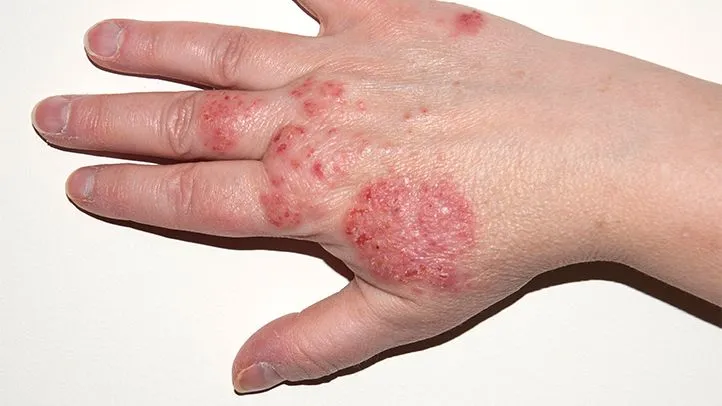What are the 3 symptoms of eczema?
What are the 3 symptoms of eczema? In the realm of dermatological disorders, eczema stands as a formidable adversary that affects millions worldwide. This chronic skin condition encompasses a spectrum of symptoms, each telling a unique tale of discomfort and resilience. In this comprehensive exploration, we will dissect the intricacies of eczema by delving into its three primary symptoms: the relentless itch, the fiery inflammation, and the battle for skin moisture.

Symptom 1: Itching (Pruritus) – Scratching Beneath the Surface: Eczema’s signature symptom, pruritus, is more than just a fleeting irritation. It’s an all-encompassing itch that can transform even the most mundane moments into a challenge. The sensation of itchiness is often the earliest sign of eczema’s presence. Imagine a constant whisper demanding your attention, a perpetual urge to scratch that seems impossible to resist. During eczema flare-ups, this itchiness intensifies, creating a cycle of scratching that can not only worsen the condition but also disrupt sleep and daily activities.
Read Also: Elements Massage Magic: Discover the Magic That Energize Your Body in 2023
The Science Behind the Itch: The itch in eczema stems from a combination of factors. Firstly, the skin’s barrier function is compromised, allowing allergens and irritants to penetrate more easily. This triggers an immune response, releasing substances that activate nerve endings, leading to the sensation of itching. Additionally, the dryness and inflammation characteristic of eczema further contribute to the itch-scratch cycle.
Symptom 2: Inflammation and Redness (Erythema) – The Skin’s Fiery Protest: It is more than skin deep; it’s an orchestra of immune responses orchestrating a symphony of inflammation. The skin becomes a canvas, painted with shades of redness and swelling, indicating the immune system’s fight against perceived threats. This inflammation not only mars the skin’s appearance but also contributes to the discomfort and pain experienced by individuals with eczema. The interplay of immune cells and inflammatory molecules creates a battleground beneath the surface, leaving visible evidence of the skin’s fiery protest.
Read Also: Hyland’s Leg Cramps: Your Key to a Cramp-Free and Pleased Life! in 2023
Decoding the Inflammatory Cascade: The immune system’s involvement in eczema is complex. Genetic factors play a role, as do environmental triggers. When the immune system responds to these triggers, inflammatory cells release substances that cause blood vessels to dilate, leading to redness and swelling. This inflammation can be cyclical – scratching irritates the skin, causing further inflammation, which in turn prompts more itching.
Symptom 3: Skin Dryness and Scaling – Moisture’s Elusive Embrace: Eczema transforms the skin’s texture, turning its protective barrier into a porous sieve. Moisture, a critical component of healthy skin, is stolen away, leaving a parched and scaly landscape. The dryness is palpable, and the scaling – visible evidence of the skin’s struggle for hydration – becomes a defining feature. Skin that once felt supple and smooth now reflects the challenges faced by individuals with eczema.
The Barrier’s Breakdown: The skin’s outermost layer, the epidermis, is essential in maintaining hydration and keeping irritants out. In eczema, this barrier breaks down. The skin loses its ability to hold moisture, creating an environment conducive to dryness and flakiness. The result is a compromised barrier that allows allergens and irritants to penetrate, further fueling the inflammatory response.
Watch “What are the 3 symptoms of eczema” on YouTube:
Read Also: Amika Thermal Brush Mastering Your Gorgeous Looks in 2023
It’s grasp need not be all-encompassing. Armed with knowledge, those affected can forge a path toward comfort and relief. By delving into the nuances of itching, inflammation, and skin dryness, we empower ourselves to take charge of our skin health, ultimately rewriting the narrative of eczema’s impact on our lives.





